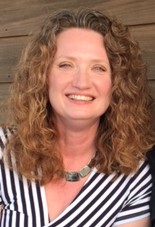If you’re searching for an editor for the first time, you may think all you need to do is hire someone and send them your book. If you don’t hire an experienced editor, that may be all they ask of you.
Please know, that’s not enough.
You need to hire an editor who feels like a partner to you, and one who views herself as your partner in making your book the best it can be. Partners need to work toward the same goal, which requires communication between the two of you about those goals. To help you communicate those goals to your editor, I’ve drawn up a list of things to think about.
- Who are you writing for? You need to define your intended audience for lots of reasons. It affects your writing style, your content, your vocabulary and your marketing, to name just a few. Your editor needs to know who you intend your audience to be before she begins working on your book.
- What theme or overall message are you trying to convey in the book? Have you thought about a theme? If you had one in mind as you wrote, make sure and share that with your editor. She can look for places to draw that out or enhance it as she works through the manuscript. If you didn’t have one in mind, tell her that too. It’s very possible that there is a theme running through it that she will notice and that she can bring to your (and your readers’) attention–if you want her to.
- Are you pursuing self-publishing or traditional publishing? I always like to know this, mostly for formatting reasons. As an editor, I don’t do a lot of formatting; it’s not my specialty. But there are a few rules that apply to self-publishing that don’t apply if you’re looking for an agent, and vice versa.
- Is this book part of a series? I wrote about this in more detail in an earlier post, which you can find here. It’s helpful to know if you’re sending your editor a standalone book or one that will be a building block for others.
- Are you going to sell your book or give it away? I’ve worked with writers who publish books they intend to give away for free either on their websites or at conferences because the book is a tool to introduce potential clients/customers to their businesses. I like to know if this is how the book will be used; it affects suggestions I make regarding content and language.
These are just a few goals to consider sharing with your editor. There are many others I haven’t mentioned, but hopefully I’ve gotten you thinking about what you want to accomplish with your book and what to tell your editor so that she can help you accomplish your goals.
Do you have a question or two about the goals for your book? Send me an email at sharon@editorsharonhoneycutt.com and/or comment on this post. I’d love to hear from you!
